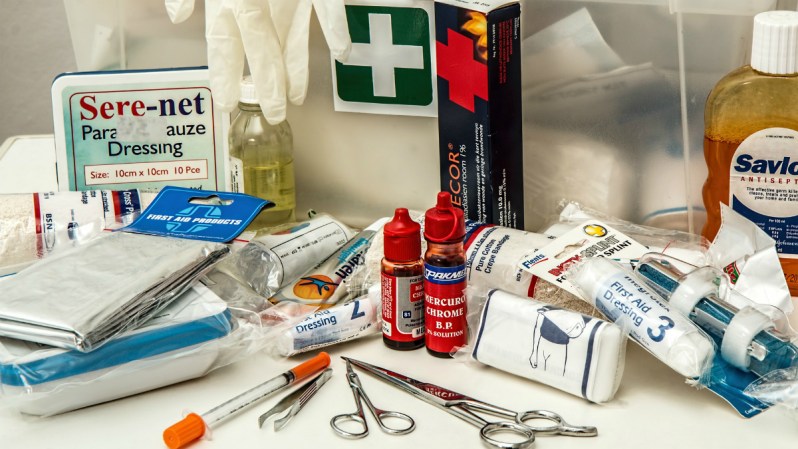No matter where you live, nature always seems ready to drop the hammer square on your head. In the Southeastern states, hurricanes can deliver destruction on a biblical scale. Out west, if it’s not wildfires ravaging acre after acre, it’s earthquakes ripping apart the very land below us. On the plains, tornadoes slice swaths through farm, field, and town alike. In Hawaii, the goddamned mountains explode.
And that’s just what we have to deal with here in America — don’t even get me started on monsoon flooding or tsunamis. Oh, also there’s civil unrest or terrorism or a military attack. The sobering fact is that no matter where you live, you are always at some level of risk of confronting a disaster, be it natural or man-made. Your chances of surviving a disaster and your potential to reduce the severity of its impact on you, your family, and your household depends primarily on two factors. One factor is how well you respond after disaster strikes. The other is how well you prepared beforehand. And the latter has a dramatic impact on the former.
Don’t pretend it can’t happen to you. (But do hope it won’t!) Follow these disaster preparedness tips and be ready to face that tornado, hurricane, earthquake, wildfire, Russian invasion, or horrific combination of all of those plus a tsunami thrown in for good measure.
Be Prepared, Generally
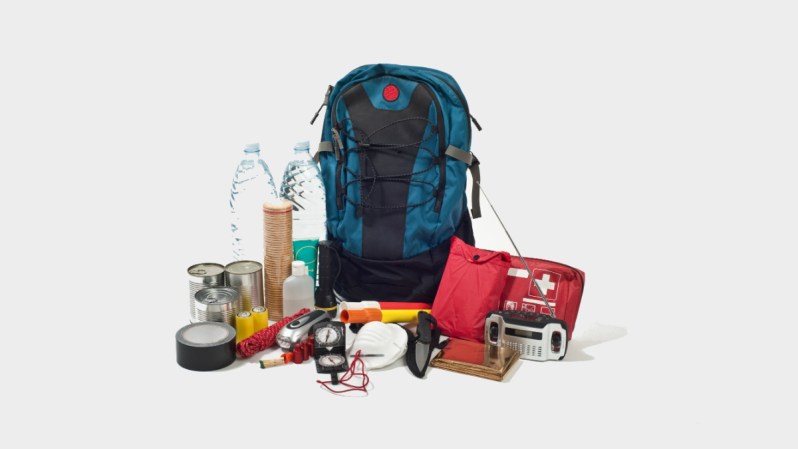
General disaster prep means having your basic needs covered for at least three days of unaided survival. Stock enough food and water for the people and pets in your home, keep critical documents like passports and deeds and such in a secure spot (ideally a fireproof box), and make sure you have enough of your medicines, baby care products, and other such necessities.
Know how to quickly shut off gas lines, the water, and the electricity (broken gas pipes, plumbing, live wires exposed after, say, a tree falls through the roof? Not good) and check your home for potential flooding issues. This means ensuring windows are properly sealed, gutters are clear, the foundation and roof are in good shape, and so on. And if you live in an area prone to fires, clear dried brush and brambles and anything that could easily ignite with a spark. Also note which objects could present a danger if hurled aloft by high winds; that way, you will remember to secure or move them in the event of a hurricane or tornado. No one wants impaled on their own patio umbrella.
During many disasters, you can shelter in place. But I still recommend (and yes, I absolutely practice what I preach) having a go-bag on hand. Also known as a bug-out bag, this is a kit stocked with all the essentials you’ll need for a few days of survival away from home. You can asse
mble your own, but I use a VLES Designs go bag because it comes loaded with everything from first aid supplies to water filtration products to hand-crank/solar radio/flashlight/charging station device.
And unlike many bug out bags, the VLES go bag also leaves some dedicated space empty for your specific needs, like medicines, allergy-safe foods, and any critical objects. They also send some detailed literature that will help you curate your go bag and prepare your mind for worst case scenario reactions, and a prepared mind is just about as important as a ready bug-out bag.
Finally, on the general disaster preparedness front, you should periodically check government resources that post information about potential (or impending) issues, as the earlier you know about coming trouble, the better prepared you will be to confront it.
Check these sites with your morning coffee…
…for some lighthearted reading. Or rather for some grim but critical information.
Be Prepared, Specifically
So you have your food and water stockpile, your medicines, baby gear, comfort objects for the kids, and your bug-out bag all prepped and ready? And you know how to lock down potential problems in and around your property? Solid.
Now, let’s talk about a few specifics.
Hurricane Preparedness Tips
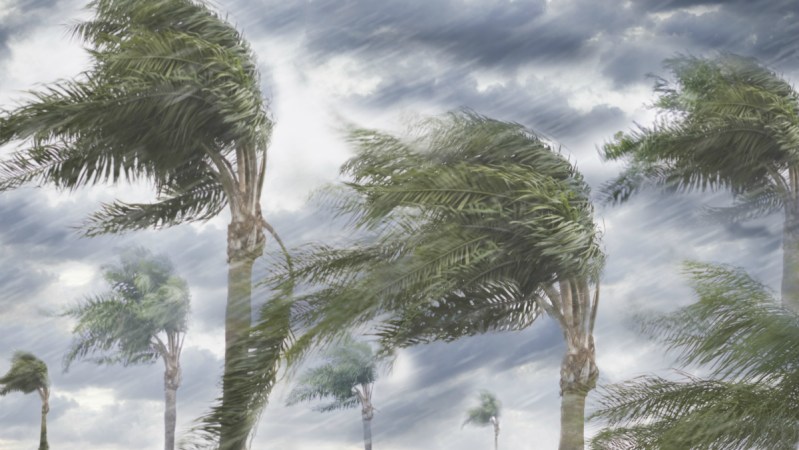
The good news is that with hurricanes, you usually have a few days of advanced warning to prep. The bad news is that a powerful enough hurricane may well tear the roof off of your house. So first…
- Know where you will shelter during the storm. Choose a room with minimal windows and strong walls, and consider hunkering down under a solidly-built table.
- Secure the windows and doors. You should have storm shutters installed or else pre-cut pieces of plywood and nails or long screws handy. Cover glass doors as well, and make sure all windows and doors are locked and bolted during the storm.
- Study your evacuation routes. If you have to clear out, most communities have designated places to which you should go.
- Top off the gas tank and check the tires. Make sure your vehicles are in good working order, are ready to roll, and aren’t at risk from falling trees, power lines, and so forth.
- Secure your property. Move or lash down objects that might go flying, put sand bags around ground level doors and windows, and make sure any nearby storm drains are clear.
- Plan for flooding. Be ready to move to higher floors, but always have access to an exit option, such as a window or balcony door. Never shelter in an attic or any other space in which you could be trapped by flood waters.
- Charge your phones. And charge backup battery packs or computers and other such devices that can be used to provide power. Plan on the electrical grid going down for a number of days.
Earthquake Preparedness Tips
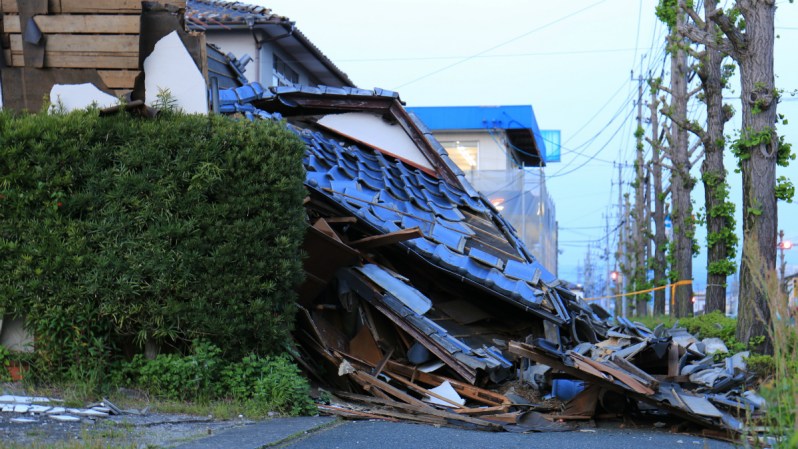
With a hurricane, you might have a whole week to prep. With an earthquake, you might get a few seconds of heads up as you phone blares out an alarm. Or maybe you’ll have no heads up at all. I lived in LA for 12 years and never dealt with more than a tremor, but I stayed ready, sir. Like this:
- Keep a pair of shoes under your bed. Earthquakes are great at shattering windows and shattered glass all over the floor can ruin your day right quick. (Yes, just like in Diehard.)
- Don’t hang heavy or sharp objects over beds, cribs, or kids’ play areas. A picture frame, trophy, or any other object that could bludgeon or puncture has no place hanging over you, so to speak, when the walls might start shaking.
- Secure large objects. Use straps to secure water heaters, stackable laundry units, flatscreen TVs, tall pieces of furniture, and so forth.
- Know where you will shelter. Doorways used to be the go-to, but these days the Red Cross recommends you get under a stout table or desk. And if you’re in bed, stay there; curl up and hold on.
- Stock at least two fire extinguishers. And be ready to immediately shut off the gas until you are sure the lines did not break. Check for gas leaks after any quake, even a small one.
Wildfire Preparedness Tips
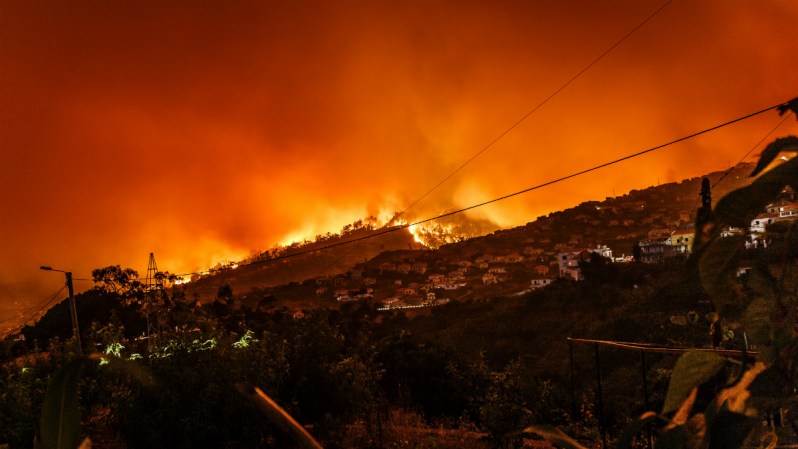
With a wildfire, evacuation is usually the best way to stay safe. Stay tuned and wait for the order to get out, and plan ahead where you’ll go when it comes.
- Keep your prized possessions at the ready for removal. And keep your car stocked with survival supplies, as it may becomes home base for a while.
- Clear brush, dried leaves, and anything around the home that could easily combust. And don’t forget to clear the roof.
- Get an air purifier. If fires are burning in your area, close all windows and doors and add extra sealing if needed (plastic wrap and tape, e.g.) and run the purifier, staying in the same room with the unit as much as possible.
- Soak the roof. If embers threaten your property, use a hose to preemptively soak your home’s roof. Also consider wetting down bushes, the deck, and so on.
- Get respirator masks. If you need to evacuate, you will likely be doing so in smoky conditions. Good respirators will go a long way toward keeping you and your family safe in the process.
Tornado Preparedness Tips
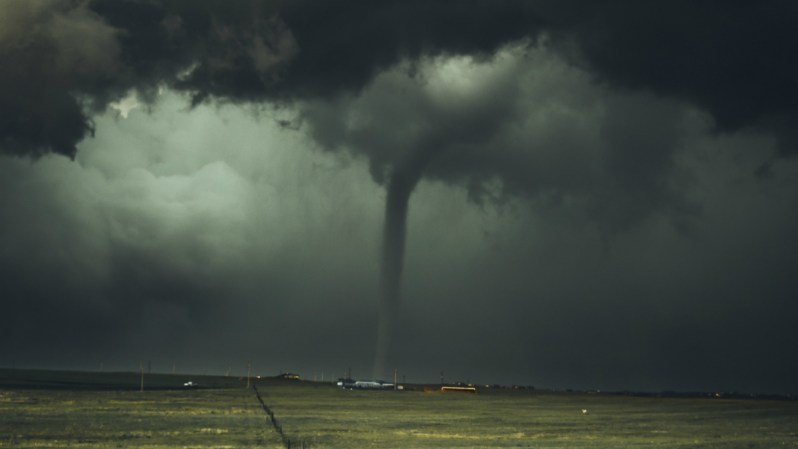
Tornadoes can send cars flying through the air. Don’t be outside when one touches down near you.
- Designate a safe space in your home (or office) to which you’ll retreat during a tornado. This should be an interior room without windows and without objects that can cause injury as they fall should the property be shaken by the twister. Ideally, you would have a basement or storm cellar that would provide you with the best form of protection.
- Clear your property of as many heavy objects as you can, and consider securing the others. If your grill always sits in one place, for example, anchor it to the ground. And take care of any dead trees that are particularly susceptible to high winds.
- If you are caught outside, get to a low, flat area that is away from structures, trees, and loose objects. Do not shelter under a bridge, roadway, or in structures like a parking garage.
If you take all these precautions and plan carefully, we’re confident you’ll be confident in weathering any disaster mother nature or man can toss your way.
